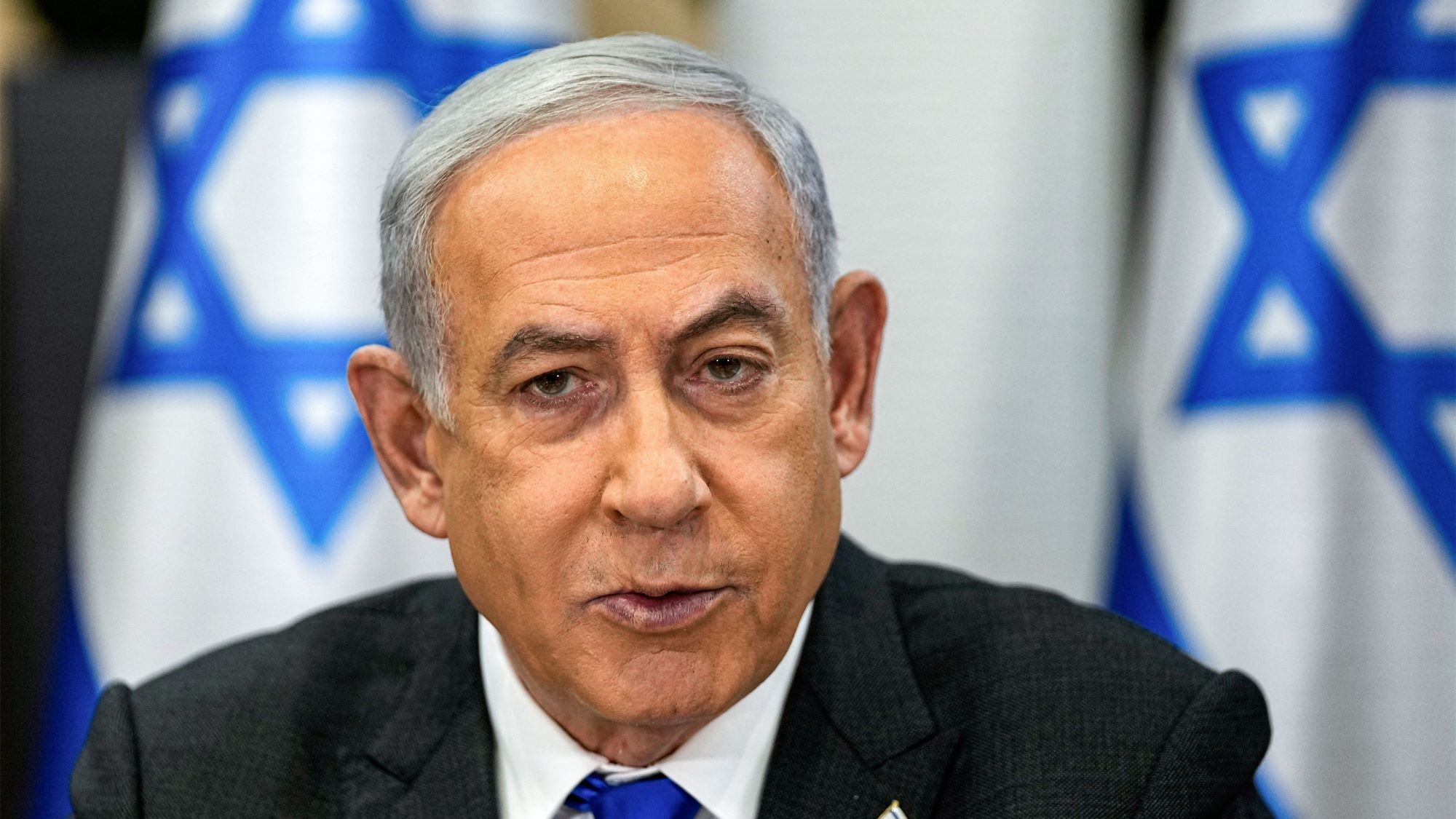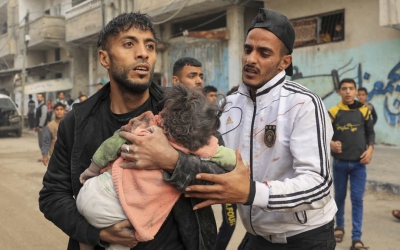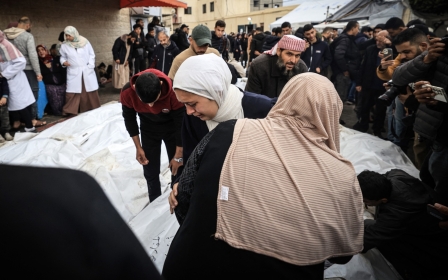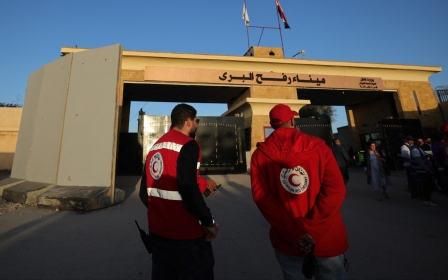War on Gaza: Netanyahu looking for countries 'to absorb' ethnically cleansed Palestinians

Israel's Prime Minister Benjamin Netanyahu has told his supporters that he is working on finding countries ready to "absorb" Palestinians from Gaza.
The Israeli newspaper Israel Hayom said Netanyahu made the comments at a meeting of his Likud party on Monday, in which he sought to clarify Israel's plans for after the war had ended.
"Our problem is countries that are ready to absorb them and we are working on it," Netanyahu said.
"The world is already discussing the possibilities of voluntary immigration,” he said, adding that a team must be established to “ensure that those who want to leave Gaza to a third country can do so. It needs to be settled. It has strategic importance for the day after the war."
His words align with statements made by other senior Likud figures. Former Likud minister Danny Danon, for example, has publicly called on western states to accept refugees from Gaza.
Palestinians have long said Israel's current campaign in Gaza is aimed at ensuring their permanent expulsion from the area.
Israel's military strategy is seemingly aimed at making Gaza uninhabitable by destroying anything that sustains life, hoping that Palestinians will then “voluntarily” leave.
The US, EU and Middle East countries in particular have rejected a forced ethnic cleansing of Gaza, but Israel has broken red lines set by these countries before with little lasting consequence, if any at all.
Follow Middle East Eye's live coverage of the Israel-Palestine war
Possible destinations for such an exodus include Egypt, Jordan and western states.
Egypt and Jordan have categorically ruled out accepting Palestinians into their borders, a possibility that recalls the Nakba of 1948, in which Zionist militias ethnically cleansed more than 700,000 Palestinians from their historic homeland to make way for the state of Israel.
Military struggles
The news of Netanyahu's comments comes as the army said it had struck more than 100 targets in 24 hours, including military sites and tunnel shafts in central Jabalia and Khan Younis in the south, as heavy ground combat continued.
A witness from Khan Younis told Middle East Eye that Israel had intensified its bombardments of the city in an unprecedented way on Monday night. The military targeted civilian homes and residential infrastructure, including the vicinity of the Nasser Hospital in Khan Younis.
"The bombing didn't stop in the night. The shells hit close to us. I was jumping from the intensity," Younis al-Hallaq said.
At least 20,915 people have been killed in Israel's bombing campaign and 54,918 wounded since 7 October, the Palestinian health ministry said on Tuesday.

Meanwhile, Israeli soldiers continue to suffer heavy casualties in their attempts to seize control of Gaza.
According to the Israeli army, 491 soldiers have been killed since 7 October, with the vast majority being killed on the day itself and at least 156 since the ground invasion began. Hamas claims the actual death toll among Israelis is much higher.
A key aim of the ongoing Israeli campaign is to kill Hamas leader Yahya Sinwar, who is believed to be hiding in the tunnel system below the territory but one key military leader has claimed it could take up to 10 years to find him.
Israeli Chief of Staff Herzi Halevi made the comments in a conversation with a cabinet member, according to Israeli daily Yedioth Ahronot.
Israel says around 874 soldiers have been wounded in Gaza but Israeli media outlets put the number as high as 5,000. News organisations in Israel are subject to military censorship.
Iran tensions
As Israel continues its campaign in Gaza, it is also in confrontation with Iran after killing a high-ranking member of the Iranian Revolutionary Guard Corp (IRGC) in an air strike in Damascus on Monday.
Seyyed Razi Mousavi was a senior advisor in the IRGC coordinating between different Iranian-aligned factions in Syria.
Iran has warned Israel it will pay a heavy price for the killing, which comes as the Iran-backed Hezbollah movement continues to trade fire with Israel across Lebanon's southern border.
This week Netanyahu dismissed a Wall Street Journal report that said US President Joe Biden had prevented Israel from pre-emptively attacking Hezbollah.
"I have seen false publications claiming that the US prevented and is preventing us from operational operations in the region," Netanyahu said. "This is not true. Israel is a sovereign state. Our decisions in the war are based on our operational considerations and I will not elaborate on that."
Hezbollah's entry into the ongoing conflict has been subject to speculation since the 7 October attack.
Middle East Eye propose une couverture et une analyse indépendantes et incomparables du Moyen-Orient, de l’Afrique du Nord et d’autres régions du monde. Pour en savoir plus sur la reprise de ce contenu et les frais qui s’appliquent, veuillez remplir ce formulaire [en anglais]. Pour en savoir plus sur MEE, cliquez ici [en anglais].





